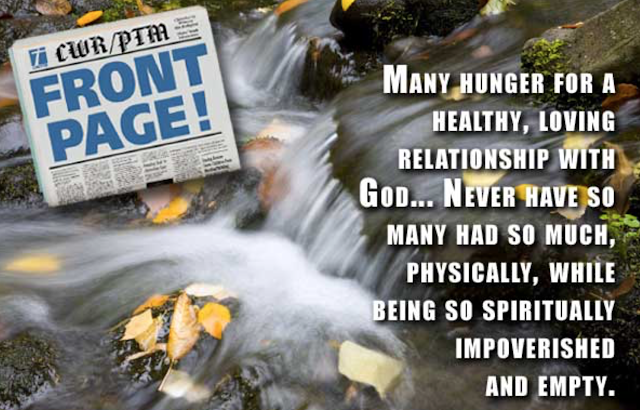The following are my takeaways from advice I received from my psychologist friend, Floris Kersloot. The topic was on how to understand and respond as peace-builders when faced with angry reactions over theological (or political) convictions.
Even when (and especially when) sharing something so basic and central to Christianity as "God is love" or "Jesus calls us away from violence into cruciform enemy love," we often see people of faith and good will triggered into what seems like inexplicable anger and defensiveness. For theological perspectives to cause angry reactions rather than lively discussions should seem strange. What 'code' might we find that unlocks the closed door of reactivity and opens the door to authentic dialogue?
Normally, emotional reactions ask for an alternative emotional response. For example, fear asks for assurance, grief asks for comfort. What does anger ask for? Understanding. This can be very difficult to offer when someone is freaking out at you. But it is growing edge of those who would be peacemakers. Not to answer reactions with reactions, but with 'the other cheek' of understanding. How so?
We ask (ourselves or the other), "Where is the anger is coming from?" It's not simple disagreement. Something is happening at the heart level ... there's a backstory of some sort. Usually the anger arises from some deeper need or longing or fear.
From there, we might explore the possibility that we share a common longing or concern, even with someone on the opposite end of the theological (or political) spectrum. [We ought also critique and transcend the spectrum itself]. For example, the shared longing between me and my wackiest (;-) friends might be our hatred of injustice and our desire to see the world set right. On that level, we might communicate this common ground by sharing stories that energize these longings and emotions. The exchange of understanding at that point defuses the anger. Our heart has been heard.
Perhaps then the real debate can begin. For example, we may still disagree on HOW injustice can be (has been) addressed and what it takes to heal the world. We may still disagree on how it will happen, but by understanding that we agree that it should, the discussion may move from heat to light if we are willing (some are not if the real issue is ego-centric -- 'I need to be right').
Some of my friends (still friends and not angry) continue to differ because we operate on different assumptions. These too can be shared. For example, our perspectives are so often informed by assumptions about how we read the Bible. In such cases, we ought to say, "we have such different ways of approaching and interpreting this text," rather than "you are unfaithful" or "unbiblical." When I accuse someone of 'literalism' and am accused of 'liberalism,' neither of us feel understood and anger lurks. But if we understand that neither of us intends to throw the text under the bus, maybe we'll stay cool enough to actually look at it together. Then maybe we'll avoid the presumption of those who wanted to prematurely separate the wheat and tares (Matthew 23:24-30), heeding instead the advice of the Master that says we're not wise enough for such us/them discernment. Better that we grow together until the harvest.
We can also share how we'd like to be understood. For example, I would like to be understood this way: my perspective begins at the cross as a revelation of the nature of God as self-giving, radically forgiving, co-suffering love and the power of the resurrection to overcome evil with good. And these are to be transposed into the life of daily discipleship through the transforming grace of the Holy Spirit.
By taking the permission to share this, I must also be willing to give that same permission. "How do you like to be understood." You can see then that this is not merely about sharing information, but actually co-ministering understanding to our longings and desires, fears and wounds (before anger pre-sabotages communication). Here's a basic test: am I moving toward love or moving away from it? Am I deconstructing an idea, or am I tearing down a person? Am I building my ego by winning an argument, or building a relationship by listening as carefully as I'm telling?
Blessed are the peace-builders; they will be called sons and daughters of God.
 I've been reading your A More Christlike God. On page 102 you discuss "Trinitarian love". I've always taken the Trinity as a "given," and never really looked into its implications. But as I've read Jason Pratt's Sword to the Heart, I've come to see that the Trinity has significant ethical implications; God Self-Begetting (the Father) and God Self-Begotten (the Son) always treat One another lovingly. If a Person of God were to rebel against another Person of God, all existence would cease. This gets around the "Euthyphro dilemma" in a way that I do not think unitarian faiths can. What are your thoughts?
I've been reading your A More Christlike God. On page 102 you discuss "Trinitarian love". I've always taken the Trinity as a "given," and never really looked into its implications. But as I've read Jason Pratt's Sword to the Heart, I've come to see that the Trinity has significant ethical implications; God Self-Begetting (the Father) and God Self-Begotten (the Son) always treat One another lovingly. If a Person of God were to rebel against another Person of God, all existence would cease. This gets around the "Euthyphro dilemma" in a way that I do not think unitarian faiths can. What are your thoughts? 





















